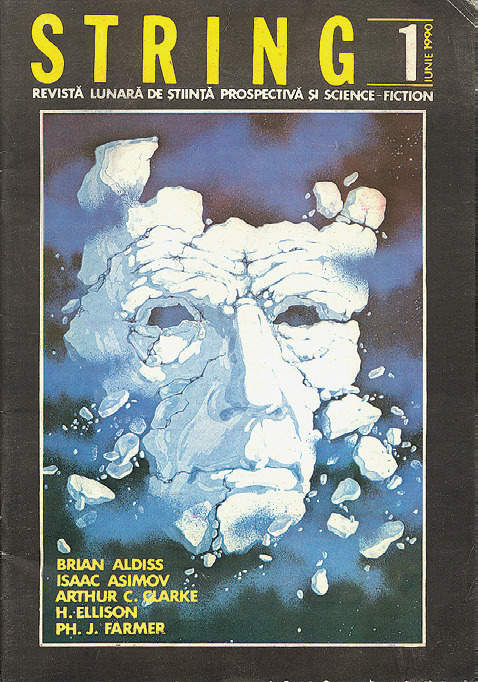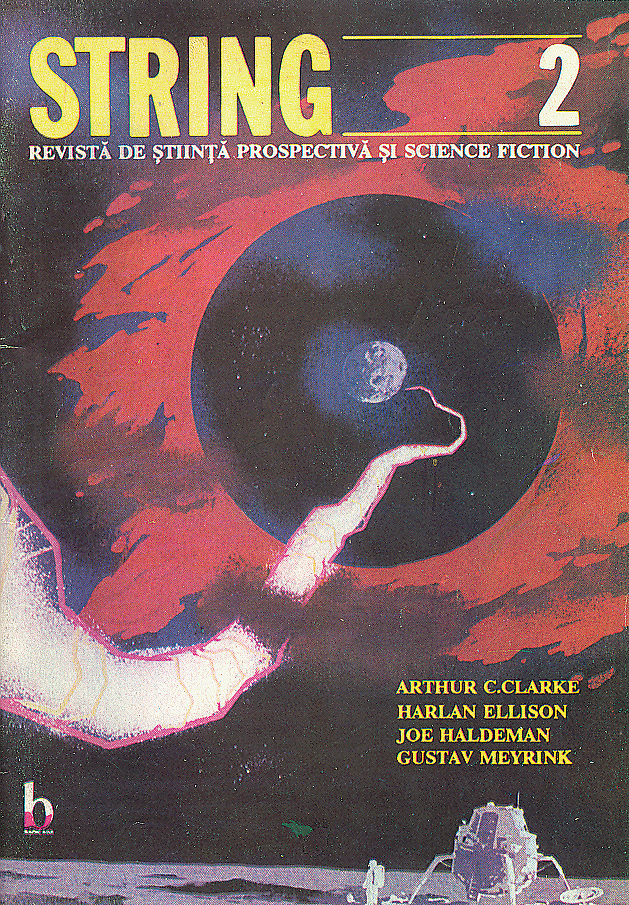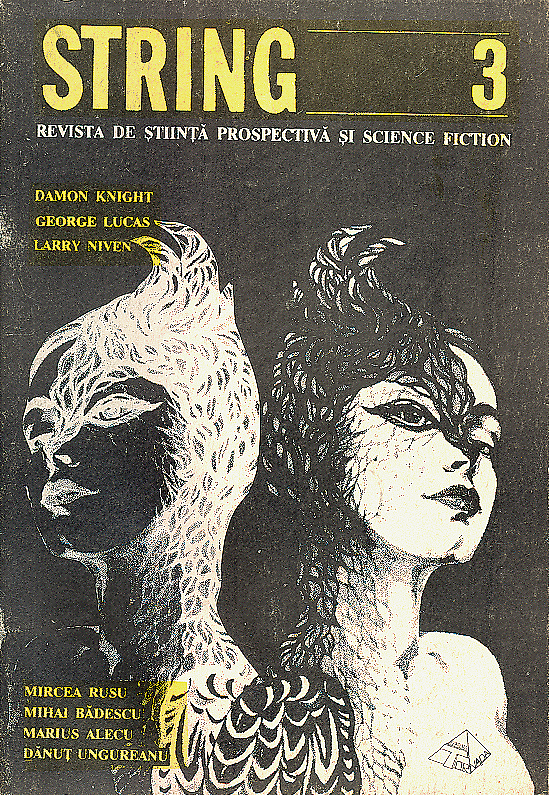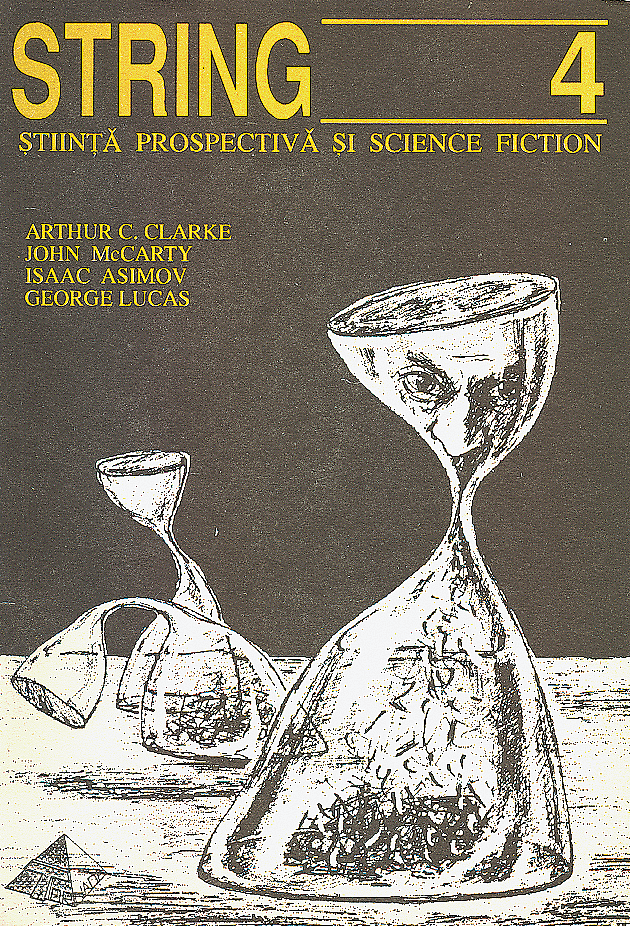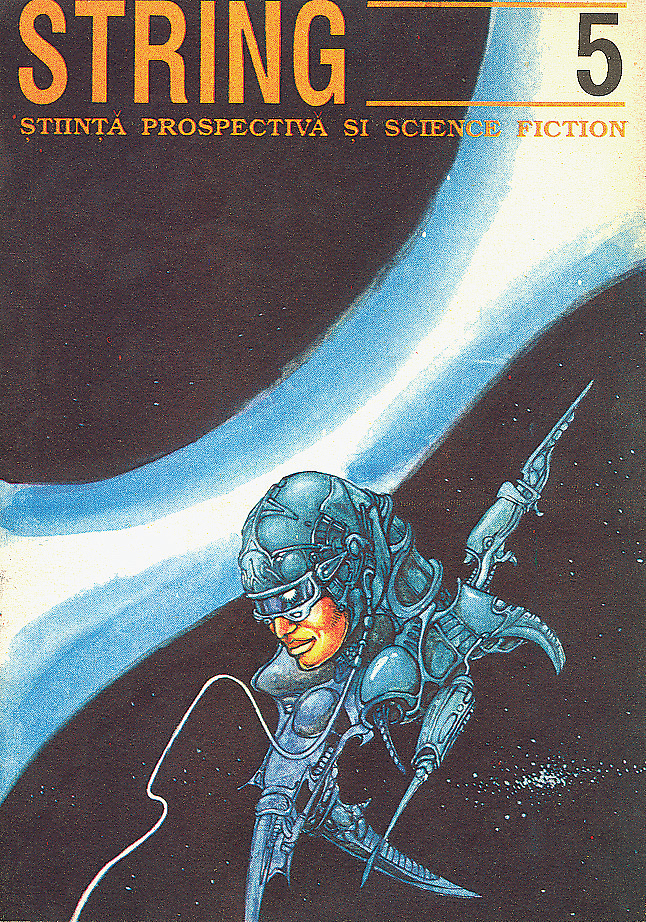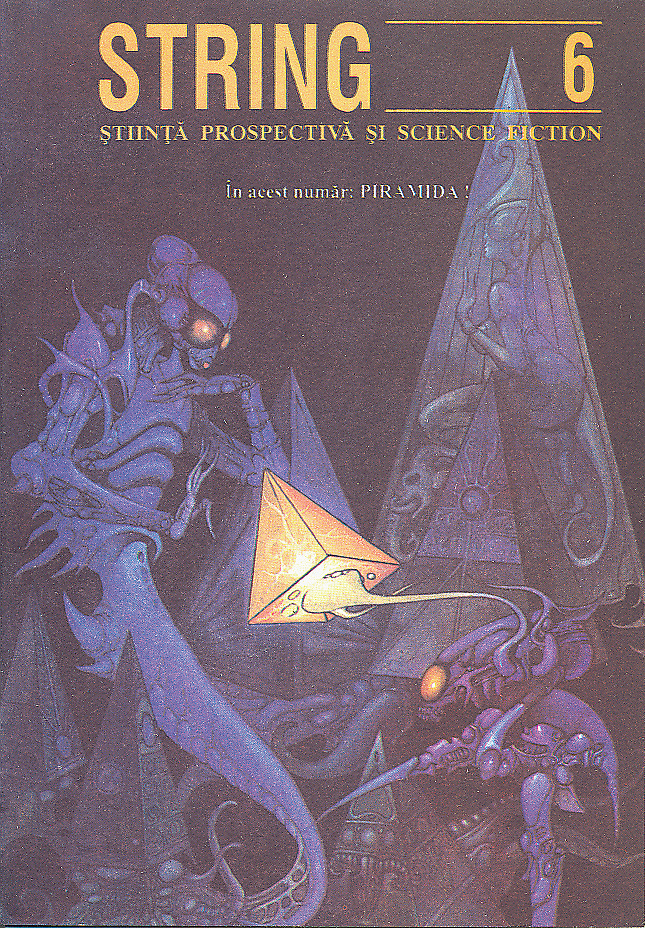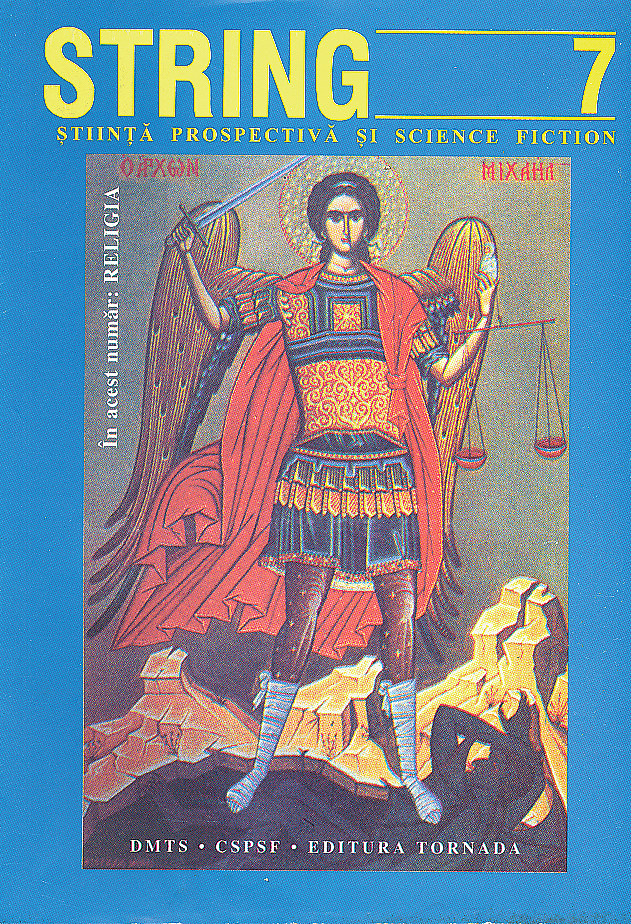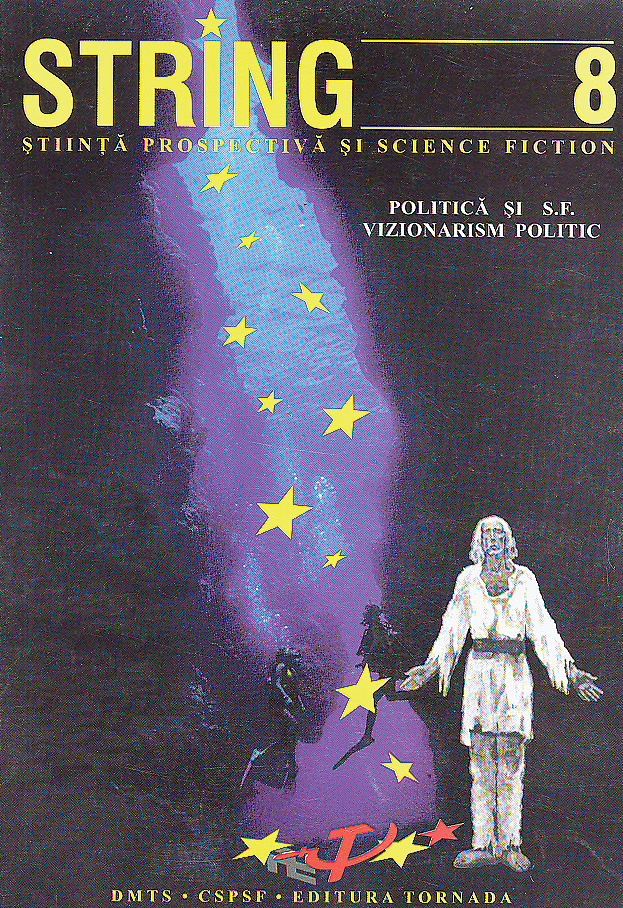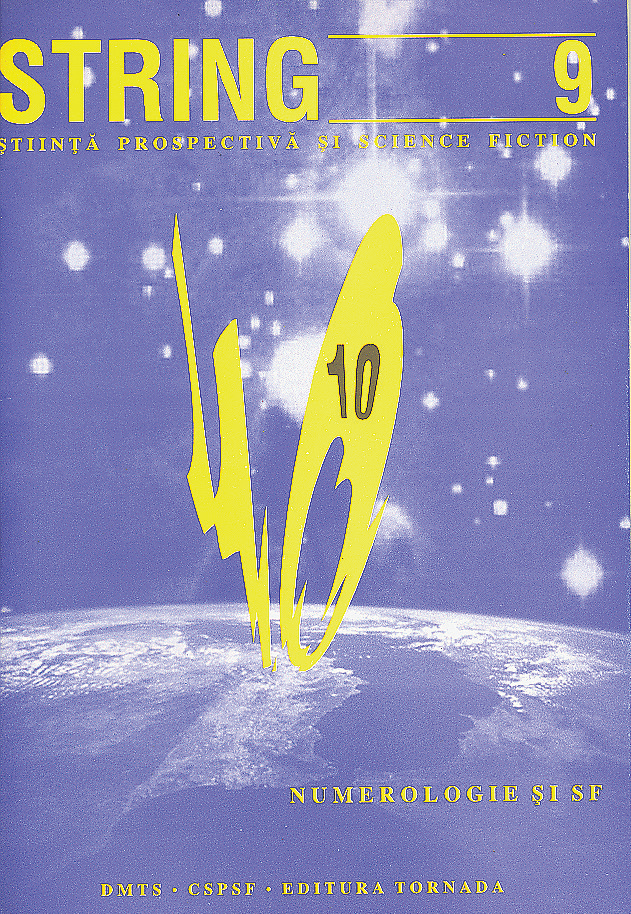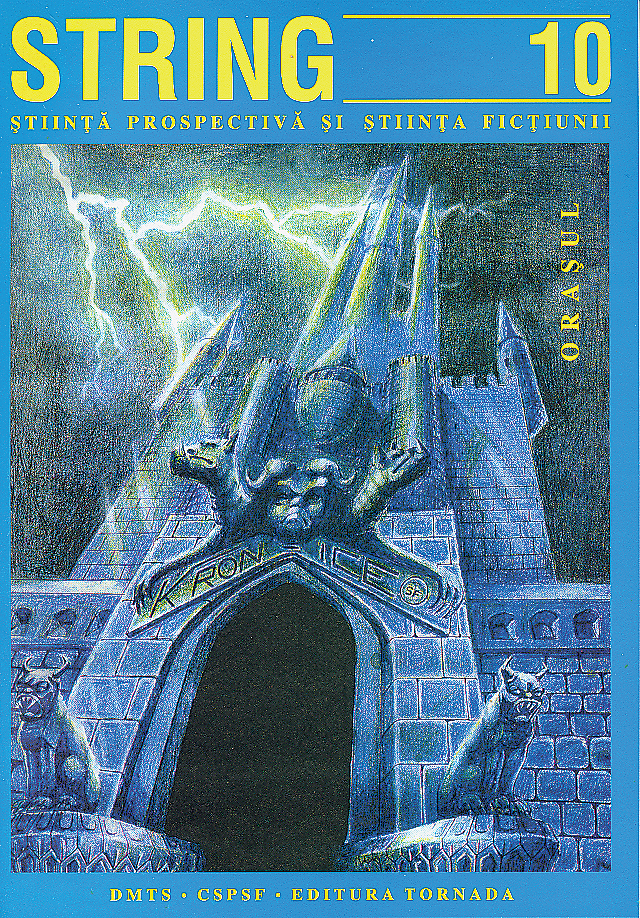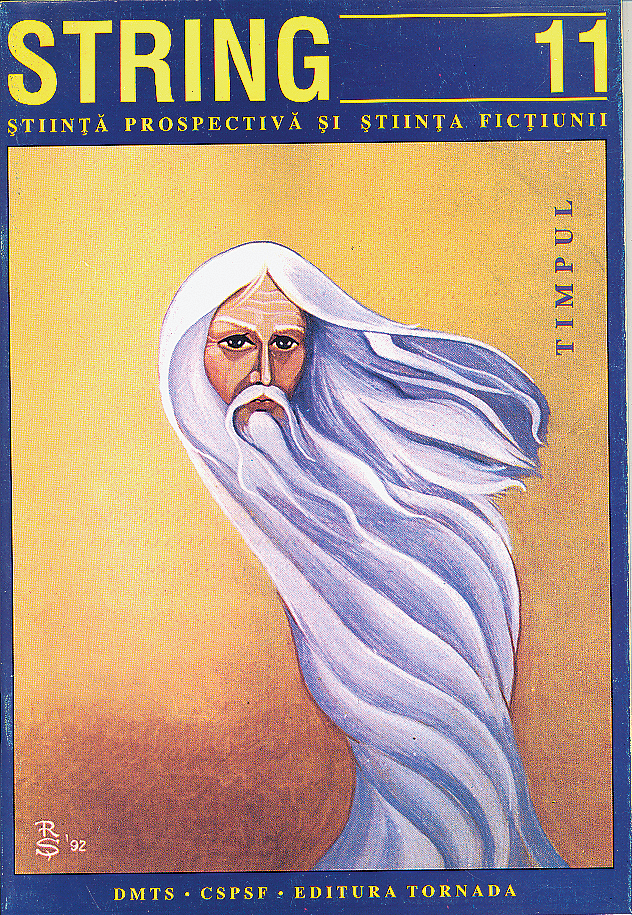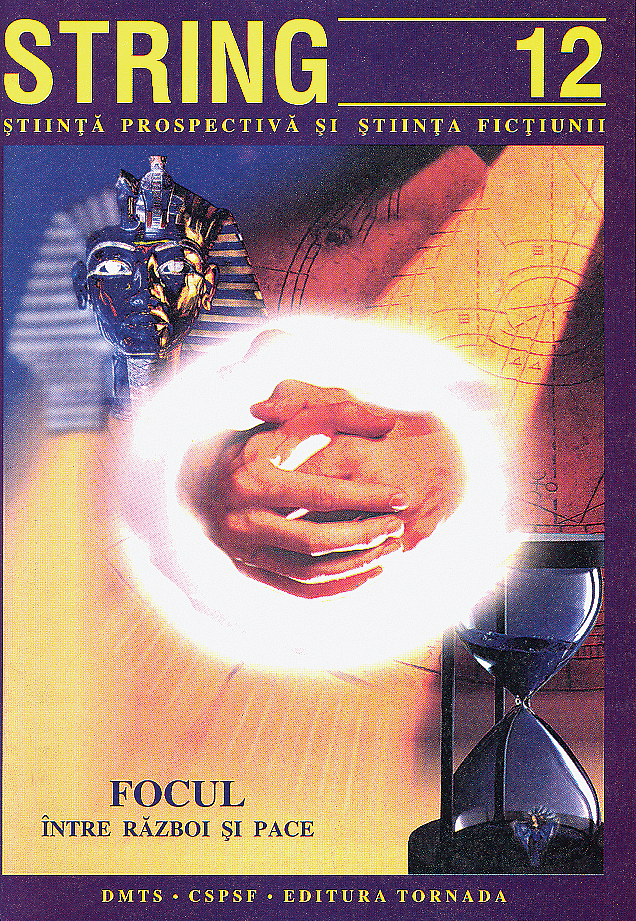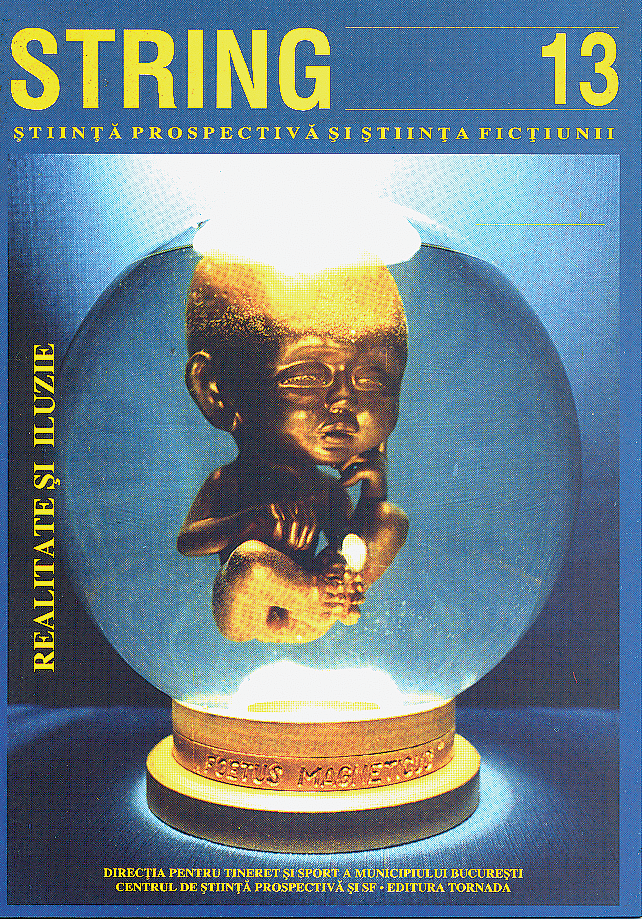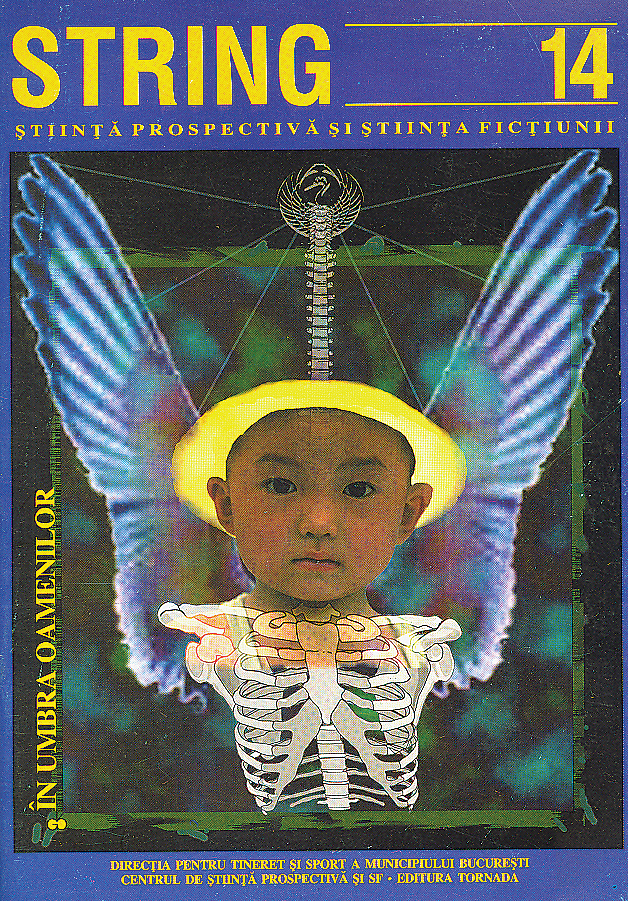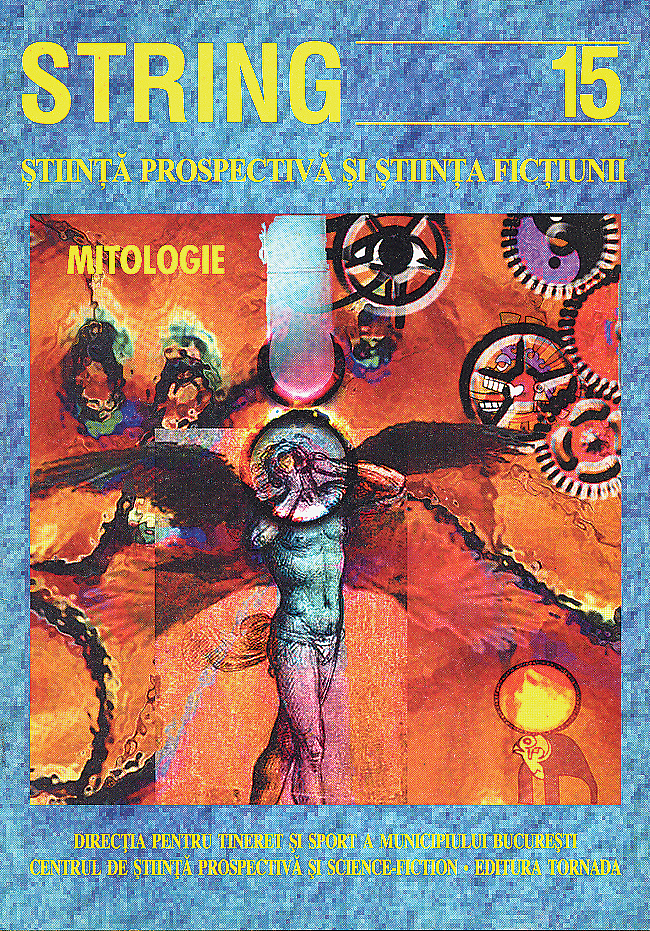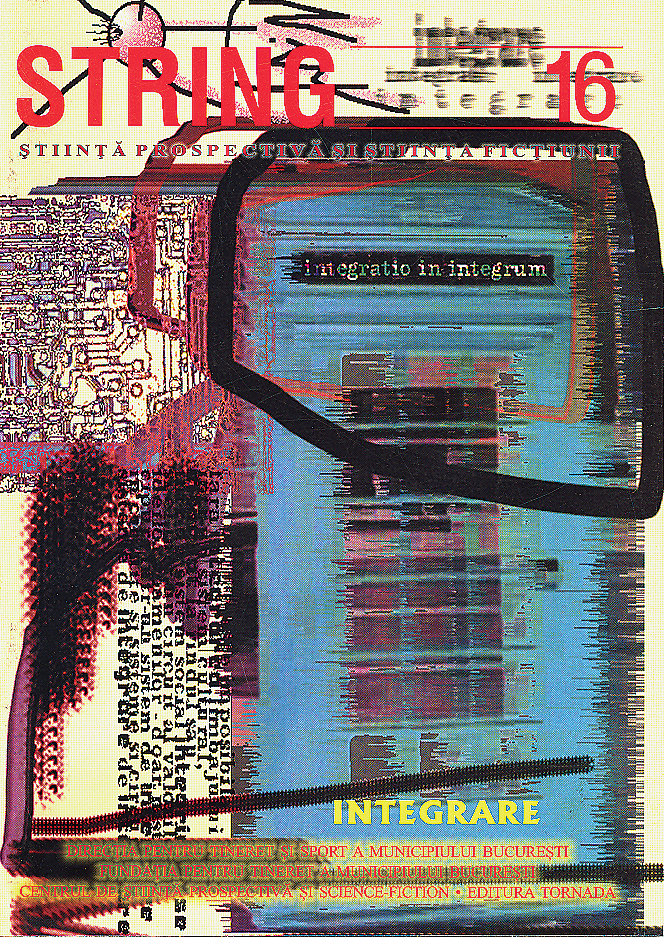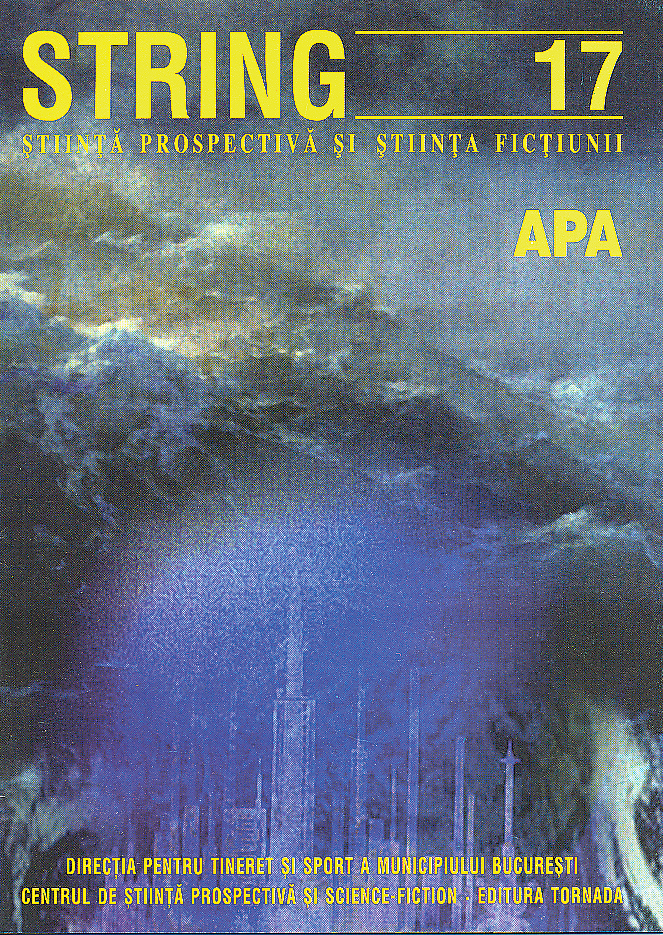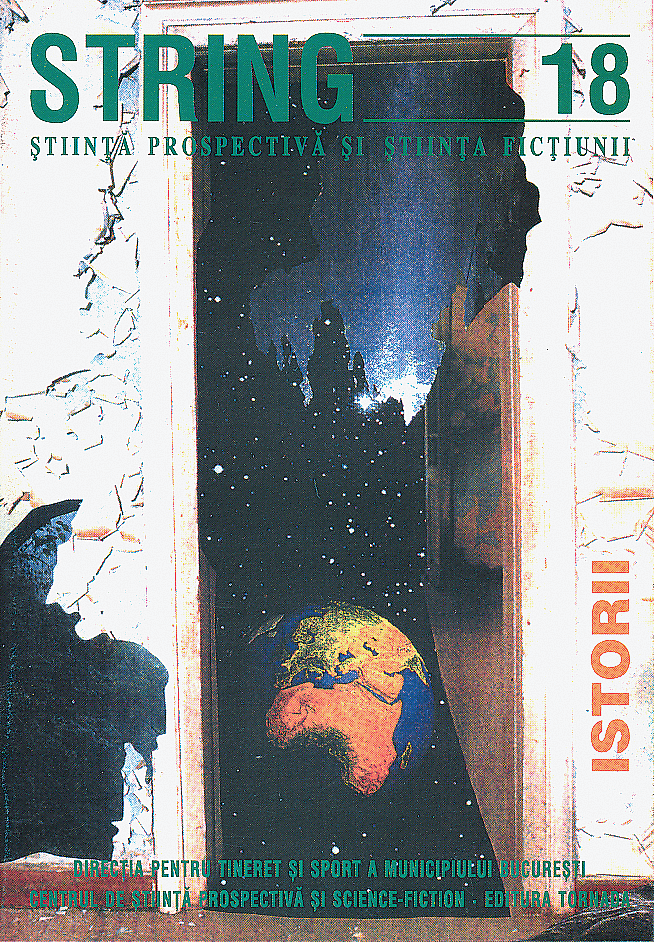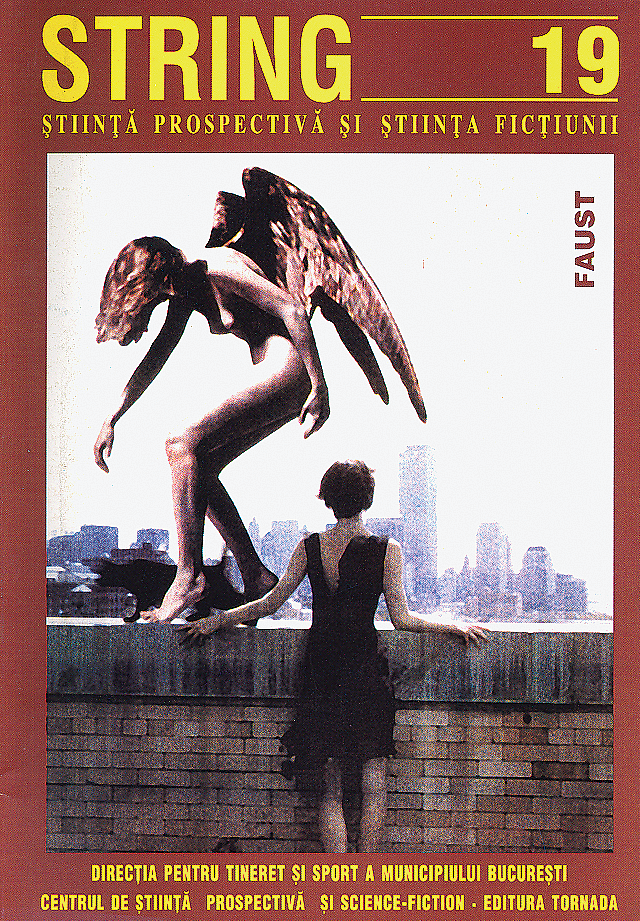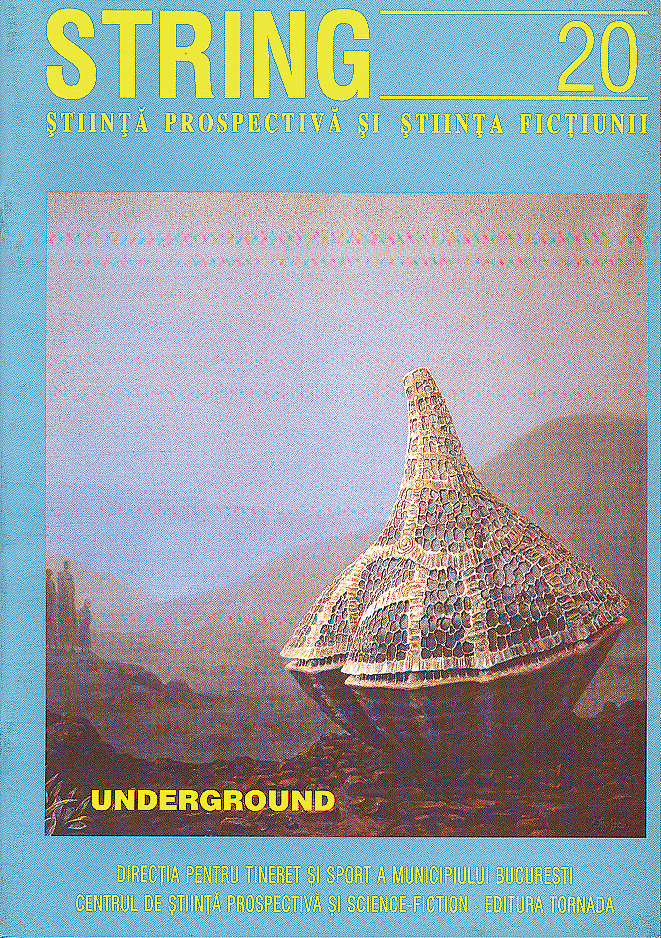Cenacle and string center

The Center for Prospective Science and Science-Fiction was established as a non-governmental organization based on Law 21 of 1924, in September 1990, having its roots and history in the STRING Cenacle unofficially established in 1987, at the Faculty of Energy on October 6, as a "technical-scientific anticipation and science-fiction literature" cenacle in the Polytechnic University of Bucharest as following the initiative of Mrs. Mihaela MURARU-MâNDREA and the students with whom she had formed a philosophical, scientific and literary dialogue group.
The desire to create an ideal from "knowledge" and to try "a cultural renaissance" constituted for them the meaning of establishing the cenacle, which they named STRING after "String theory" (string theory), being fascinated by the possibilities of this theory to consider that the Universe would have ten or twenty-six dimensions and that "everything" would be "vibration".
The steps towards the officialization of this group were well received both by the Student Association (ASC) and by the party committee of the Bucharest Polytechnic Institute (IPB). Let's not forget that "scientists" remain "still scientists", still full of knowledge, regardless of the type of society in which they live. Only the "ideological head" of the Bucharest University Center did not agree with the name STRING. (Why not choose a Romanian name, sir? What is that thong???! Have you run out of Romanian words???! – Position to which the leader of the cenacle responded with the explanation: – STRING means STRING, i.e. the abbreviation of "ENGINEER STREET", the symbol of the communist creativity of Romanian engineers! – with this chameleon response, managing to save the name of the cenacle.)
The bi-monthly meetings were a success. On the days when the scientific documentation section of the cenacle carried out its activity, between one hundred and four hundred participants arrived. There were many supporters, both among the professors and researchers of IPB, as well as from Bucharest research institutes. The subjects debated were from the area of frontier sciences: the pyramid effect, fractals, the theory of shapes, the theory of numbers, the golden number, etc.
In the literary section of the cenacle, the works created by "stringists" were read and criticized, many of them elaborated under the impression of previous scientific meetings. Among the regular participants were the writers Romulus Bărbulescu and George Anania, Ion Hobana, Mihail Grămescu, professor Dolphi Drimer, Dr. Marioara Godeanu, physicist Mircea Rusu, researcher Florin Munteanu, students from philology, architecture and other Bucharest faculties.
The revolution found the cenacle by posing the problem of publishing his works, for which, in the summer of 1990, he managed to print the first issue of the magazine STRING – magazine of prospective science and science fiction.
Parallel to the internal activity, the STRING cenacle participated in the structuring of the science-fiction movement in Romania, together with the cenacles Quasar, Henri Coandă, Geneze, Atlantis, Quo Vadis, Fifth Dimension, Argonaut, Helion, Wells, etc.
As a first action, he organized in Bucharest, with the support of the Youth Foundation of the Municipality of Bucharest, in the fall of 1990, the 20th National Convention of Science-Fiction, ROMCON '90.
The new possibilities of expression, which appeared with the acquisition of freedom, led to the need to create a federation of Romanian SF... thus together with the other cenacles in the country that also created their own structures with legal personality, the National Youth Federation for Science-Fiction, sciences was established
prospects and the impact with the future (initiators: MMM and Dan Merișca).
With the support of CSPSF-STRING, on January 9, 1991, the FNTSF, with the approval of MTS, obtained "space" from FTMB at "Ecran Club" (CSPSF-STRING headquarters), obtaining legal personality and becoming according to the "Repertoire of youth structures in Romania 1991", issued by MTS, the fifth largest youth organization in Romania, with an apolitical character.
CSPCF facilitates young people's access to the latest information in science and technology, literature and art, but also facilitates contacts in the field, on a national and international level, supports the centralization and archiving of data regarding the agenda of events and expected publicistic-editorial appearances, as well as those related to the history of Romanian fadom.
In 2010, through the change of statute, CSPSF becomes the Center for Sciences, Prospective, Creativity and Fiction, in short the "StrING" Center and gives up its seat and membership of FTMB, having directors Eng. Nicolae Cozma, Adrian Bănuță and general secretary Eng. Costin Iftimescu.
From 2020, CSPCF becomes a member of FTMB again (after a 10-year hiatus) and has a majority leadership with members
- from the "fourth generation": stud. Andrei Alexandru, student. Vladut Dobos,
- the second, Eng. Nicolae Cozma,
- and the third generation, Eng. Marius Bucur,
- remaining the president from the first generation of the association, the founder Dr. Mihaela Muraru – Mândrea.


 Română
Română Deutsch
Deutsch English
English Español
Español Esperanto
Esperanto Français
Français Italiano
Italiano Latīna
Latīna Português
Português 中文(简体)
中文(简体) 日本語
日本語 한국어
한국어